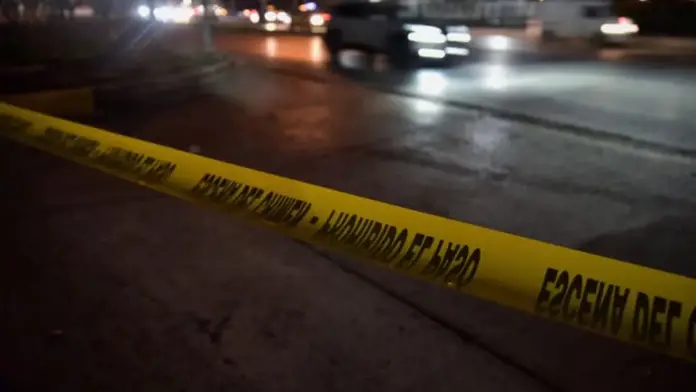A report from the organization indicates that, during the AMLO administration, the Armed Forces and criminal groups have reached agreements that allow them to expand their territorial control
:quality(85)/cloudfront-us-east-1.images.arcpublishing.com/infobae/HGNG2D4ITFDMDFMYLOL67BW6DY.jpg)
In the fall of 2021, Michoacán was the scene of a significant event in the fight against organized crime in Mexico. The Jalisco New Generation Cartel (CJNG), known for its extreme violence and territorial expansion, launched an offensive on the borders with Jalisco. This military advance by the four-letter cartel displaced thousands of people and attracted the attention of both national and international media.
To counter the advance of the CJNG, the Mexican Army would have adopted a strategy that involved collaboration with local criminal groups rivals of the criminal group commanded by Nemesio Oseguera Cervantes, alias El Mencho, according to information revealed by the International Crisis Group.
The document titled “The Labyrinth of the Generals: Crime and the Military in Mexico” indicates that members of two criminal groups, a senior federal official, soldiers and local authorities coordinated to form a common front against the El Mencho criminal group.
Once the operation began, the Special Forces of the Mexican Army initially showed reluctance in taking decisive measures against the CJNG combatants, due to fear of being accused of crimes against humanity, a serious crime with both national and international implications
“Army special forces were reported to be hesitant to take decisive action against the CJNG due to fear of being accused of crimes against humanity. However, after receiving assurances from a local group that the bodies would be disposed of in clandestine graves, the soldiers proceeded,” the report reads.
In a series of battles in and around Taixtán, municipality of Tepalcatepec, and El Terrero, in the municipality of Buenavista, the Special Forces of the Mexican Army managed to eliminate nearly 400 CJNG combatants.
Crisis Group notes that “a source confirmed that around 400 people died. These deaths had not been reported previously. Nor are they reflected in the statistics of homicides or disappearances.”
Criminal leaders and fighters, as well as state officials, confirmed that soldiers killed dozens of members of the Jalisco Cartel and that the bodies were disappeared with the help of local criminal groups.
However, despite this significant loss for the CJNG, the operation did not completely dismantle the cartel and it only reorganized and resumed its activities, including new attacks against soldiers of the Secretariat of National Defense (Sedena).
One criminal leader summarized the situation by mentioning that “there are always human replacements,” referring to the ability of criminal groups to replenish their ranks quickly, even after suffering significant casualties.
Agreements to reduce violence
In recent years, Mexico has seen criminal violence remain at alarming levels despite the government’s efforts to combat organized crime. President Andrés Manuel López Obrador’s administration has deployed more troops than any previous administration, but the results in terms of reducing violence have been mixed.
The International Crisis Group report also reveals that there has been a tacit, sometimes explicit, offer by the Mexican State to these groups to reduce open violence in exchange for greater freedoms in their territorial control.
According to the investigation, the security policies implemented under López Obrador have resulted in a type of modus vivendi in which criminal groups agree to reduce and hide violence in exchange for state permissiveness to control and expand their operations.
In states such as Michoacán, Veracruz, Colima and Guerrero, this dynamic has allowed criminal organizations to diversify their illicit activities while maintaining a low profile in terms of visible violence.
The relationship between authorities and criminal groups is multifaceted. In some regions, security forces appear to have reached tacit agreements with criminal organizations, allowing them to increase their control over certain areas and expand their illicit and legal businesses. In other words, instead of open confrontations, what is observed is a containment of visible violence in exchange for greater criminal control over the territory.
The organization notes that a set of unwritten rules have been established that encourage criminal groups to reduce their overt acts of violence and to hide the crimes they do commit. In this framework, the authorities turn a blind eye to certain illegal activities. This agreement has allowed cartels and other criminal organizations to expand their drug trafficking operations to new substances, develop broader extortion networks, and even infiltrate legal businesses.
Therefore, the case of Michoacán in which the Armed Forces joined with local criminals to execute some members of the Jalisco New Generation Cartel is especially revealing.
While these strategies may have helped temporarily reduce homicide rates in some regions, the long-term results are questionable. Criminal organizations have taken the opportunity to diversify their income and strengthen their control over local communities. Extortion, control of legal businesses, and involvement in new drug trafficking are just some of the ways these organizations have expanded their influence.
One of the biggest challenges of this strategy is the lack of transparency and accountability. Military operations, such as the one in Michoacán, are often carried out without adequate oversight, allowing allegations of crimes and abuses by security forces to continue uninvestigated, the document highlights.
The revelations in the International Crisis Group report highlight an uncomfortable and complex reality in the fight against organized crime in Mexico. Collusion between authorities and criminal groups, even though it may have temporarily reduced visible violence, has allowed a greater consolidation of criminal control over certain territories.
A few days before the elections, Crisis Group’s analysis suggests that there needs to be a reassessment of security strategies that address the root causes of crime and violence.
Source: infobae







